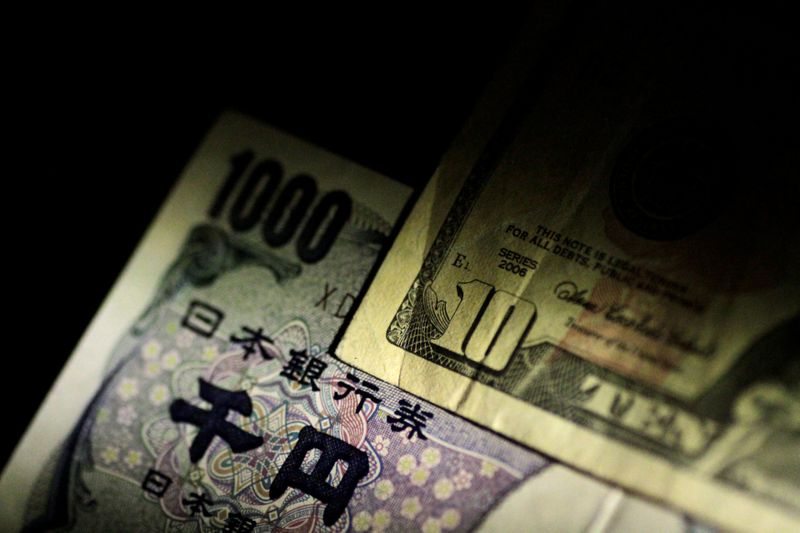By Ritvik Carvalho and Iain Withers
LONDON (Reuters) - The safe-haven Japanese yen and Swiss franc gained on the dollar on Tuesday, as investor hopes for global monetary easing were tempered by concern over how much it could do to combat the economic damage from the coronavirus outbreak.
Global stocks and oil rallied on Tuesday, and safe haven assets -- gold, the yen, and the franc -- were standouts as risk appetite grew in anticipation of stimulus from central banks.
G7 finance ministers and central bank governors were due to hold a conference on Tuesday at 1200 GMT to discuss how to deal with the outbreak and its economic fallout.
The call comes with markets already betting the U.S. Federal Reserve will lead a round of global monetary easing. [MKTS/GLOB]
However, Reuters reported that the draft G7 statement had no fresh fiscal or monetary pledges, tempering investor optimism and encouraging a flight to safety.
The dollar fell 0.34% to 107.95 yen
"I think there is some disappointment on the back of the Reuters report that there's unlikely to be an explicit stimulus," said Lee Hardman, currency economist at MUFG.
"That has triggered some disappointment. We are in wait and see mode. Even if we do see a powerful policy response, the impact of coronavirus will still weigh heavily on the market."
In a statement, expected on Tuesday or Wednesday, the G7 countries will pledge to work together to mitigate damage to their economies, without giving specifics, a source with knowledge of the draft told Reuters on condition of anonymity.
That leaves investors again confronting fundamentals: The virus and the economic slowdown it is causing, and the damage looks as if it won't be confined to China-exposed assets.
"For many investors there is the view, perhaps, that central banks can do a lot to help the symptoms of this crisis but they're not going to entirely make it go away," said Jane Foley, currency strategist at Rabobank in London.
"There is going to be uncertainty about the economic impact of this virus, and given that, there will be safe haven demand."
The extra room to respond in the United States, where the Federal Reserve's benchmark rate is 1.5% to 1.75% compared with zero in Europe, has weighed on the dollar.
However, after the European Central Bank said it was ready to take "targeted" steps to fight the virus's effects, the euro fell from a five-week high on Tuesday.
The dollar index was 0.04% higher at 97.571 (=USD) and the euro was 0.15% lower at $1.112 (EUR=)
The Australian dollar
"Assurances of easier liquidity and fiscal support may help stabilize the sentiment in the very short term, but the risk of a higher rate of COVID-19 infections needs to be monitored closely," Citi EM Asia economist Johanna Chua said in a note.
"The situation remains fluid and a lot depends on how successful the G7 conference call is in keeping up with the expectations of coordinated easing."
Euro zone consumer prices came in as expected, rising more slowly in February than in January, up 1.2% year-on-year after a 1.4% rise the previous month.
Later on Tuesday, the results of the Super Tuesday Democratic Party primaries in the United States are expected. The Bank of Canada meets to set its policy rate on Wednesday.
(Graphic: World markets performance - https://fingfx.thomsonreuters.com/gfx/mkt/13/1728/1702/Pasted%20Image.jpg)
